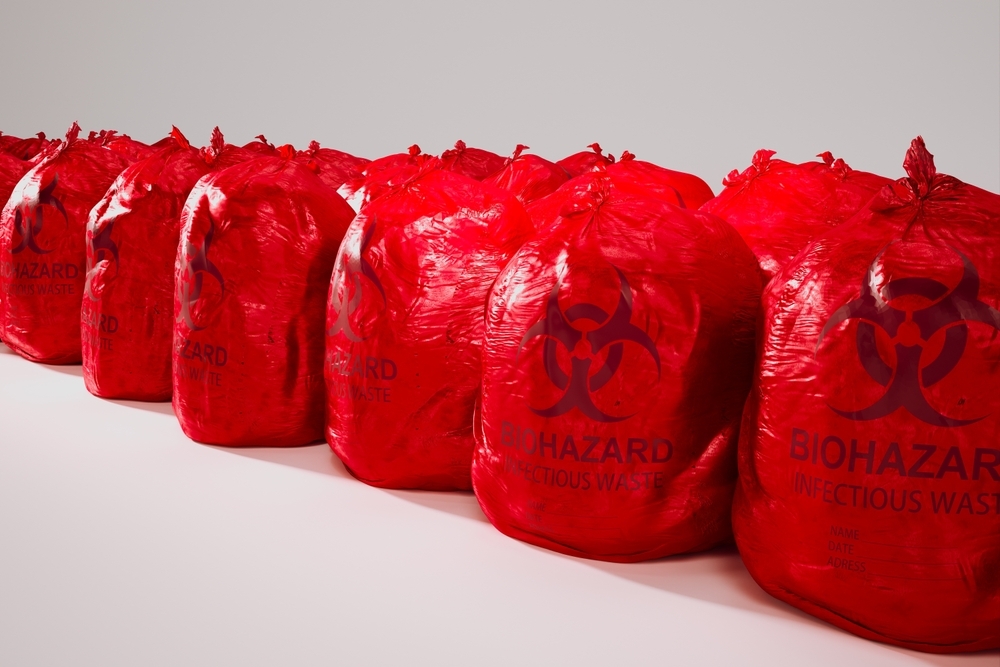
Understanding Frequency of Medical Waste Pick Up at Assisted Living Facilities
The frequency of medical waste pickup within nursing homes and assisted living facilities can vary depending on the volume of waste generated and the regulations of the local or state government. Generally, medical waste should be stored in a safe and secure location to prevent any risk of contamination or injury until it is properly disposed of. Individual assisted living facilities should have a policy in place for the disposal of medical waste and work

What are Top Challenges of Regulated Medical Waste Management?
Medical waste management is a crucial aspect of healthcare that helps to ensure the safe disposal of potentially infectious or hazardous materials. It plays a vital role in protecting communities from the spread of diseases and reducing environmental impact, as well as minimizing the risk of cross-contamination and other health hazards associated with improper disposal. However, the management of medical waste comes with various challenges that can be difficult to overcome. Waste Medic is here

The Top Items on 5 Chief Medical Officers’ To-Do Lists
Chief Medical Officers across the country know employee burnout, medication shortages and respiratory infections, among a wealth of other challenges, have created the not-so-perfect storm in hospitals. Richard Shannon, MD, chief quality officer at Duke Health in Raleigh, N.C., told Becker’s something has to give or clinicians will continue to react to overwhelming working conditions “with their feet,” referring to the several recent nurses’ strikes at New York hospitals. The main thing clinical leaders can

Addressing 3 Pandemic-Induced Integrity Challenges Related to Telehealth
Prior to the pandemic, claims fraud, waste and abuse (FWA) was a priority issue for health plans aiming to improve both care quality and the member experience. But, accelerated by the pandemic, health plans are now grappling with compounding operational challenges — from aberrant services related to COVID-19 diagnoses, to service shifts, to uncontrolled telehealth expansion and, of course, labor shortages. These converging challenges has brought a sense of urgency to the need for a

An Introduction to Bioplastics in Medical Applications
From medical blisters to body implants, bioplastics are extensively used in the healthcare sector. They have been considered as potential materials for tools and products used in medicine. The market for medical plastics is expected to be worth nearly $80 billion in 2021 and account for about 2% of the 370,000 tonnes of polymers sold worldwide. Given the high risk involved with human life, the material choice for healthcare applications is a crucial factor. The introduction

Sharps Safety Guidelines from Infection Control Today
With the start of a new year, it is a great time remind to health care workers, waste management workers, laboratory staff, and others to practice sharps safety and follow safety protocols. According to Occupational Safety and Health Administration (OSHA), it is estimated that 600,000 to 800,000 needlestick injuries and other percutaneous injuries occur annually among health care workers. Punctures and cuts can introduce bloodborne pathogens into the body, such as hepatitis B virus (HPV),

Medical Waste Disposal – The Definitive Guide
Medical waste and its proper disposal remain a major concern for America. Here are the primary reasons: The safety of healthcare patients and personnel, as well as the legal obligation in handling the waste Environmentalists are concerned with the impact of medical waste, whether it’s wasting up on a beach in Jersey Shore or being illegally dumped in landfill sites Home producers of medical waste, such as needles and syringes that want to dispose of their tools properly What

Answered: Who Regulates Medical Waste?
Since the 1988 Medical Waste Tracking Act Expired in 1991 Medical waste is primarily regulated by state environmental and health departments. EPA has not had authority, specifically for medical waste, since the Medical Waste Tracking Act (MWTA) of 1988 expired in 1991. It is important to contact your state environmental program first when disposing of medical waste. Contact your state environmental protection agency and your state health agency for more information regarding your state’s regulations

Biodegradable Medical Gowns May Add to Greenhouse Gas
The use of disposable plasticized medical gowns – both conventional and biodegradable – has surged since the onset of the COVID-19 pandemic. Landfills now brim with them. Because the biodegradable version decomposes faster than conventional gowns, popular wisdom held that it offers a greener option by less space use and chronic emissions in landfills. That wisdom may be wrong. Biodegradable medical gowns actually introduce harsh greenhouse gas discharge problems, according to new research published Dec.











